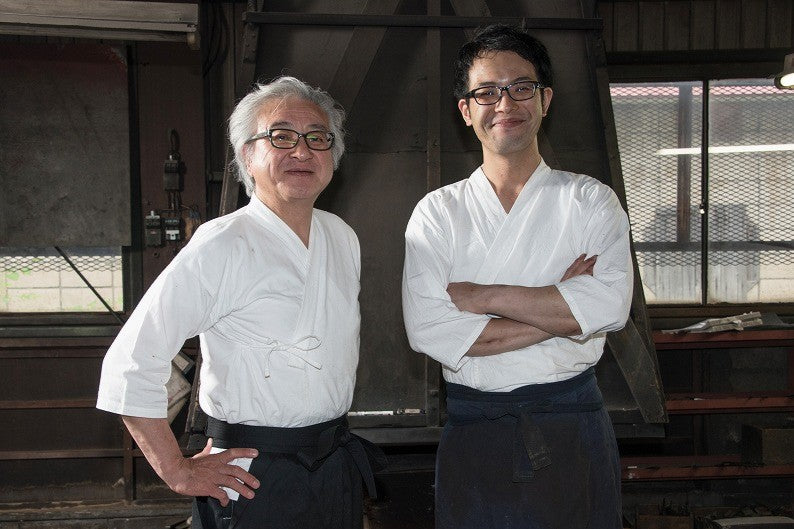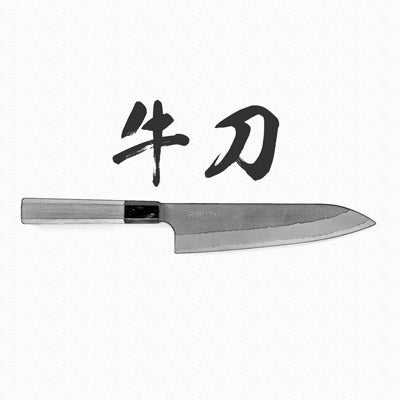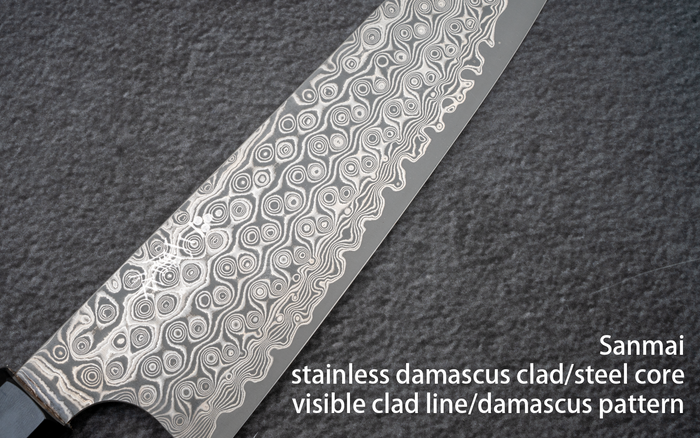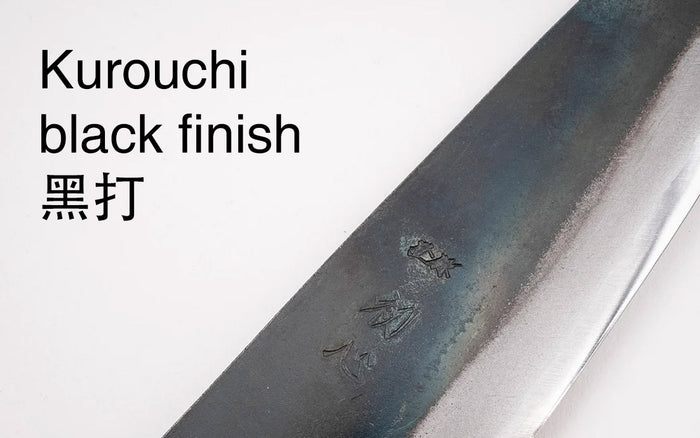It is known for a many that Hatsukokoro have been working closely with Nigara to orchestrate some product lines that are both good in performance and pleasing in appearance. I thought after seeing the Yorokobi(喜び) SLD Copper Damascus, the Ginsan Kurozome Nashiji Damascus and the Ryusui(流水) Blue 2 Nashiji Damascus line, there won't be much that they can do to suprise me. Yet when I pulled these dense blades out of the protective sleeves, the high-constrast pattern above the Shinogi line and the way light reflecting off the wide bevel suggests that this line will be another higher end line with beauty and performance by Nigara.
The eye-catching Damascus pattern layed over the Kurouchi finish is probably the most eye-catching feature that grabbed your attention. Unlike most of the Kurouchi finish we see, the oxidation layer on these knives are very dark, It is likely achieved by etching like the Yorokobi SLD line. In contrast, the silver Damascus pattern pops off strongly over teh dark surface, which reminds me of the now-nearly-impossible-to-obtain "River Jump" Tanryusen by Tsukasa Hinoura. I would assume that these knives actually undergone similar process, where the more reactive metal in the Damascus is etched away, leaving the high nickel metal protruding out above the surface, which allows them to be polished after a darker layer of oxidation formed during the heat treating. As these black crust are quite darker and thicker than the typical Kurouchi finish, additional etching are likely done after the polishing to further increase the contrast.
The cutting performance is there to match the complicated finishing process, although it can be hard to believe something this thick will actually cut well. The secret is a combination of very wide bevel and a classic concave grind done on rotary stone wheel. These two techniques helps bringing down the thickness of the knife very well, so the geometry behind the edge is pretty thin.
Being a semi-stainless tool steel, the SLD/D2 offers an excellent edge that is fine and bity, also a decent toughness and good edge retention that surpass most common stainless steel. It does require some care to stay shiny, but you will be have a easy time when sharpening these SLD knives. With the help of the weight, there aren't much resistance perceivable even when cutting through dense roots like potato or carrot.
This kind of "Heavy Blade with a Fine Edge" approach was seen on some of the Tosa knives like the Kurokuma Line, but compaire with a low sabre grind, the high concave grind on these blade have way less resistance and wedging on dense food, the downside is, it can creat some stickiness on the wide bevel. However, as the heavy blade carries quite a lot of inertia, it can push through the drag on the bevel regardlessly and allows this to be one of the few knives in our collection that can cut through potato with just gravity.
The thickened spine above the heel suggests this line is indeed forged out, and both the finishing and grind oif the wide bevel is pretty labour intensive. These factors bring up the price of this line up to a rather high point. If you are an eojoyer of popping through vegetables quickly with a dense blade, my justufication for you is that this SLD line is the closest thing you can get to Guts' Drangon Slayer in Berserk.






























